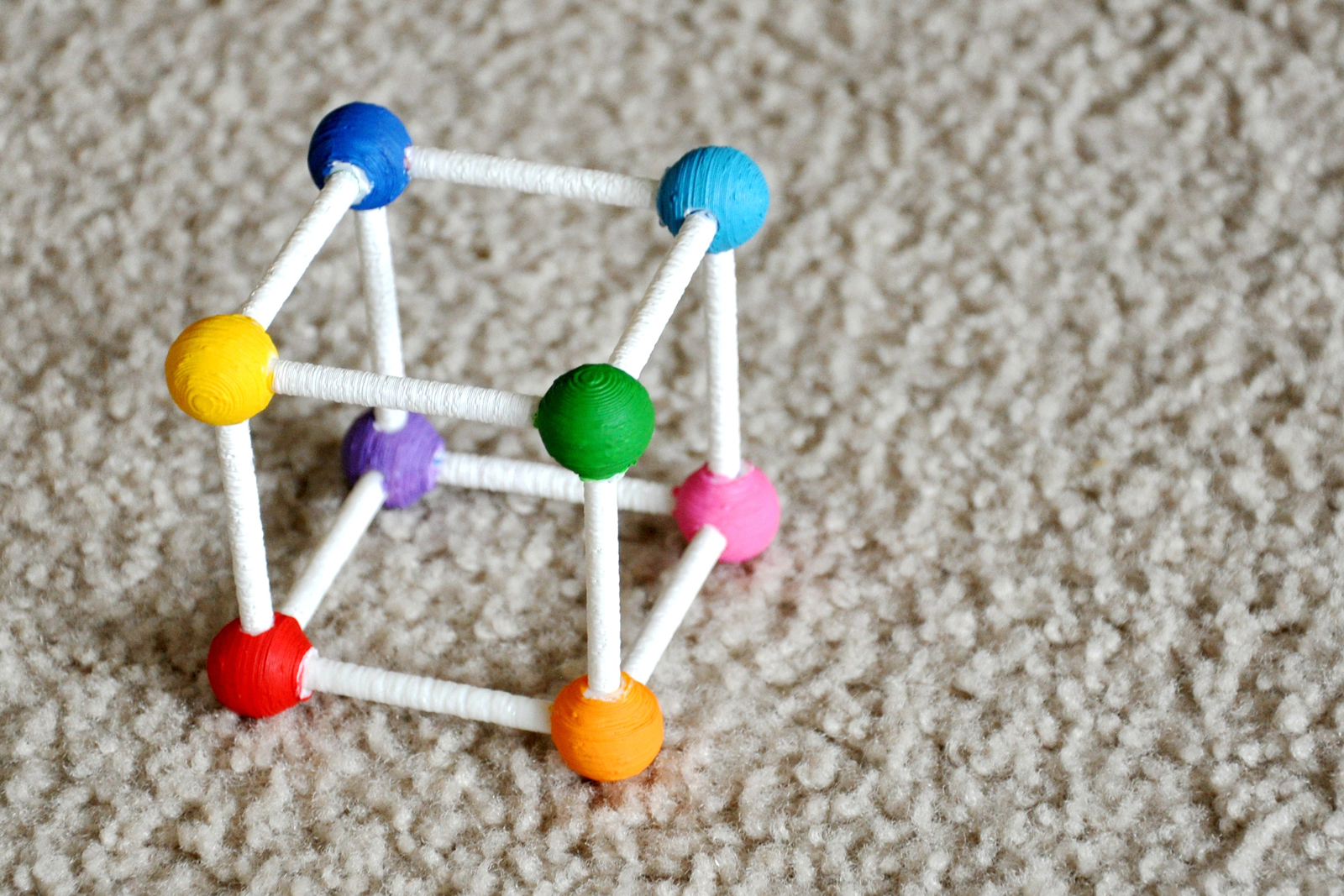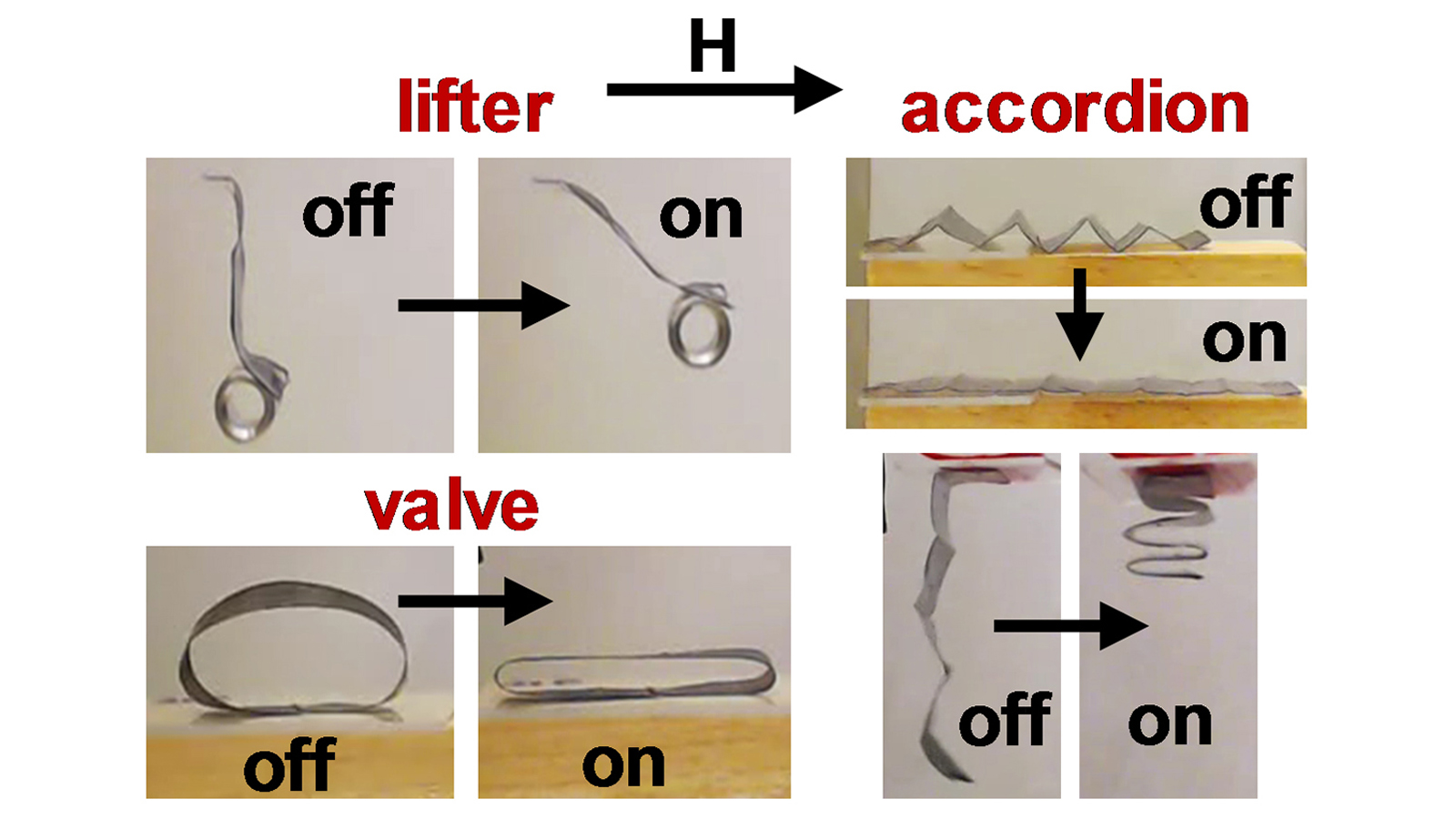Tag Archives: NCSU
This colorful cube grounds virtual objects in the real world
 You can't usually spin, stretch and otherwise manipulate virtual objects all that easily. You're often relegated to clicking and dragging on a mouse, and even exotic approaches like HoloLens or VR headsets introduce issues like lag. However, North...
You can't usually spin, stretch and otherwise manipulate virtual objects all that easily. You're often relegated to clicking and dragging on a mouse, and even exotic approaches like HoloLens or VR headsets introduce issues like lag. However, North...
Atom-thin water layers may lead to faster electric cars
 So many battery breakthroughs focus on longer battery life (and for good reason), but what about the speed of delivering that energy? That's what North Carolina State University researchers want to solve. They've produced a material, crystalline tu...
So many battery breakthroughs focus on longer battery life (and for good reason), but what about the speed of delivering that energy? That's what North Carolina State University researchers want to solve. They've produced a material, crystalline tu...
Scientists control soft robots with magnetic fields
 As slick as soft robots are, they tend to have very simple movements. It'd be a challenge to create a truly complex machine using existing technology. Researchers may have a solution to more sophisticated movement, though. They've invented a techn...
As slick as soft robots are, they tend to have very simple movements. It'd be a challenge to create a truly complex machine using existing technology. Researchers may have a solution to more sophisticated movement, though. They've invented a techn...
National Academy of Sciences finds GMOs to be ‘safe’
 The debate surrounding the safety of genetically modified organisms (GMOs) has been raging for years and continues to do so. The National Academies of Sciences, Engineering, and Medicine has finally weighed in on the matter and found GMOs to not just...
The debate surrounding the safety of genetically modified organisms (GMOs) has been raging for years and continues to do so. The National Academies of Sciences, Engineering, and Medicine has finally weighed in on the matter and found GMOs to not just...
NC State develops personalized web search without the usual server strain
The notion of personalized, contextually aware search is nothing new, but it can put a tremendous strain on servers by asking for a lot of data at once. NC State has developed a search technique that could ease that burden. Its code prioritizes results based solely on the "ambient query context," or the concepts related to a person's recent search history. Look for politicians, for example, and a search for Ford is more likely to bring up Gerald Ford than the car company. By focusing on just a fraction of a user's search habits, the university can customize results using far fewer processor cycles: while a test server could only handle 17 active searchers with an old approach, it can manage 2,900 with the new method. The query engine won't be confined to the lab, either. NC State tells us that a community-driven search beta is due within several months, and there are plans to commercialize the technology in the long run.
Filed under: Internet, Software, Alt
Source: NC State
Injectable ‘smart sponge’ controls diabetes, presents new targeted drug delivery method
Diabetics might appreciate high-tech glucose sensors when they're available, but the option for other advanced treatments is certainly intriguing. Take, for example, this new method developed by North Carolina State University researchers that uses injectable sponge to control blood sugar levels. No, it's not the same sponge you use to clean at home -- the material is made out of a substance taken from crab and shrimp shells called chitosan. This spongy material forms a matrix that's approximately 250 micrometers in diameter, where a rise in blood sugar causes a reaction in the pores that leads to the drug's release.
Fighting diabetes is but one of the things this miraculous sponge can be used for; developed further, it could even "intelligently" release anticancer drugs whenever the chitosan reacts to tumors or cancer cells in close proximity. Seems like medical technology is getting smarter with each passing day.
Source: North Carolina State University
Liquid Metals Give 3D Printing a Twist
Liquid metal for 3D printing could lead to bendy electronics, T-1000
3D printing is awesome, yet it still has a lot of untapped potential -- you can use it to create terrifying spiderbots and even tiny drones, but you can't make electronic components out of pools of plastic. Thankfully, a team of North Carolina State University researchers have discovered a mixture of liquid metal that can retain shapes, which could eventually be used for 3D printing. Liquid metals naturally have the tendency to merge, but alloys composed of gallium and indium combined form a skin around the material. This allows researchers to create structures by piling drops on top of each other using a syringe, as well as to create specific shapes by using templates. The team is looking for a way to use the mixture with existing 3D printing technologies, but it might take some before it's widely used as it currently costs 100 times more than plastic. We hope they address both issues in the near future, so we can conjure up futuristic tech like bendy electronics, or maybe even build a body to go with that artificial skin.
Via: New Scientist, Gizmodo Australia
Source: North Carolina State University
Smile, and JavaTutor’s AI knows when you’re learning online
College-age kids these days are pretty good at a few things: selfies, social oversharing and staring into screens. But can you leverage that self-obsession into a mechanism for learning? The mad scientists at North Carolina State University think so and they've got a program to prove it. Dubbed JavaTutor, the software's aimed at teaching our future workforce the basics of computer science. And it does this by tracking facial expressions -- using the Computer Expressions Recognition Toolbox, or CERT, as its base -- during online tutorial sessions. Frown and the AI knows you're frustrated; concentrate intently and the same automated emotion detection applies. So, what's the end sum of all this? Well, it seems the research team wants to gauge the effectiveness of online courses and use the cultivated feedback to better tailor the next iteration of the JavaTutor system. But the greater takeaway here, folks, is that at NCSU, online tutoring learns you!
Filed under: Science, Software
Source: North Carolina State University


 Plastic has been the material of choice for 3D printing for quite some time now, but things are about to …
Plastic has been the material of choice for 3D printing for quite some time now, but things are about to …
